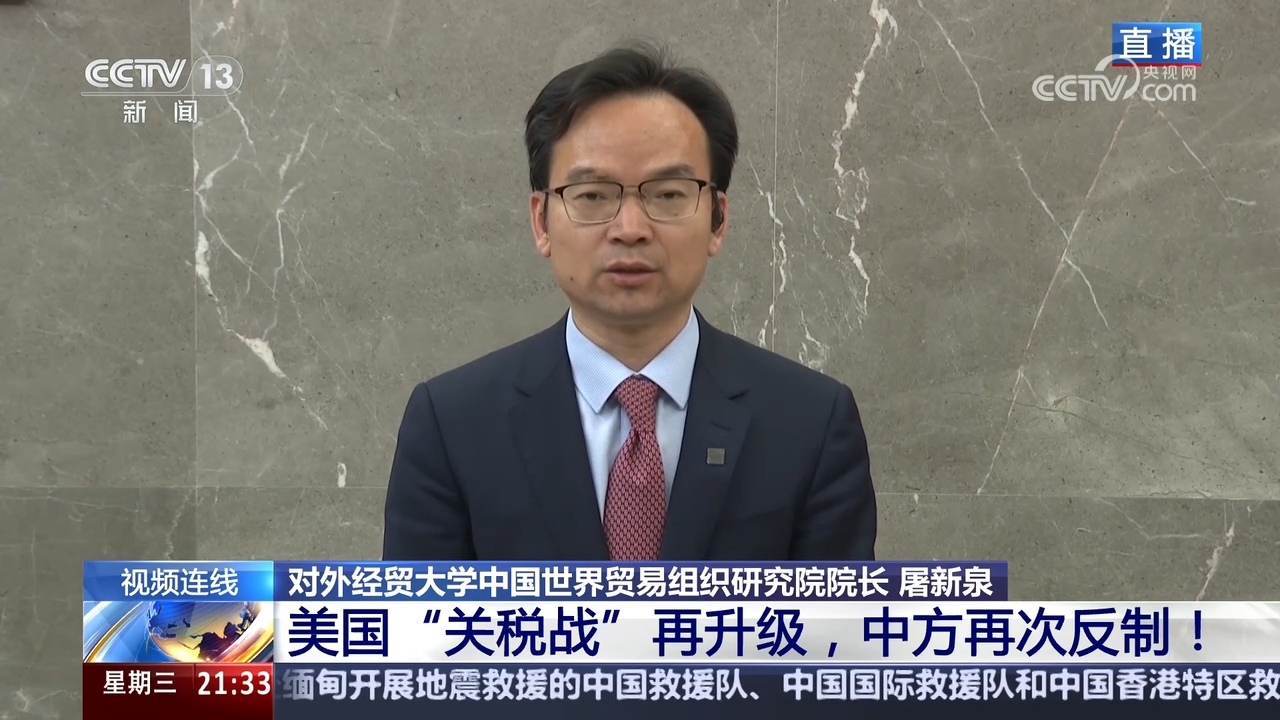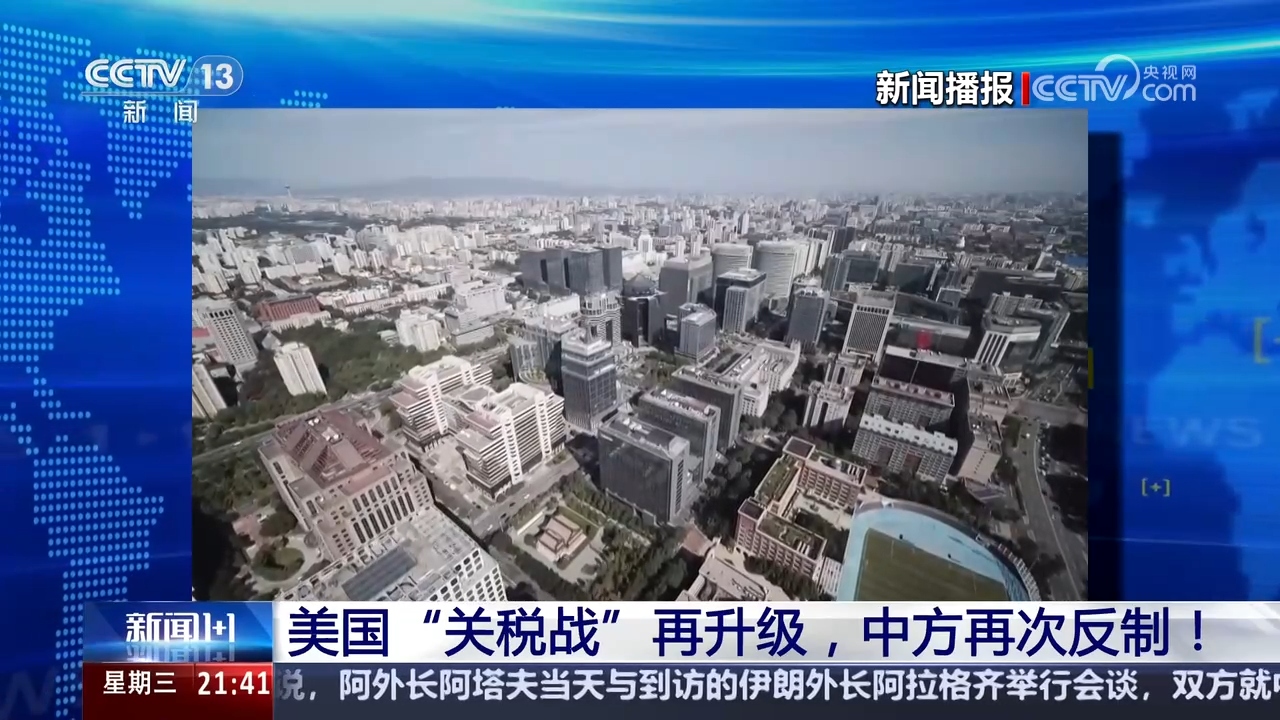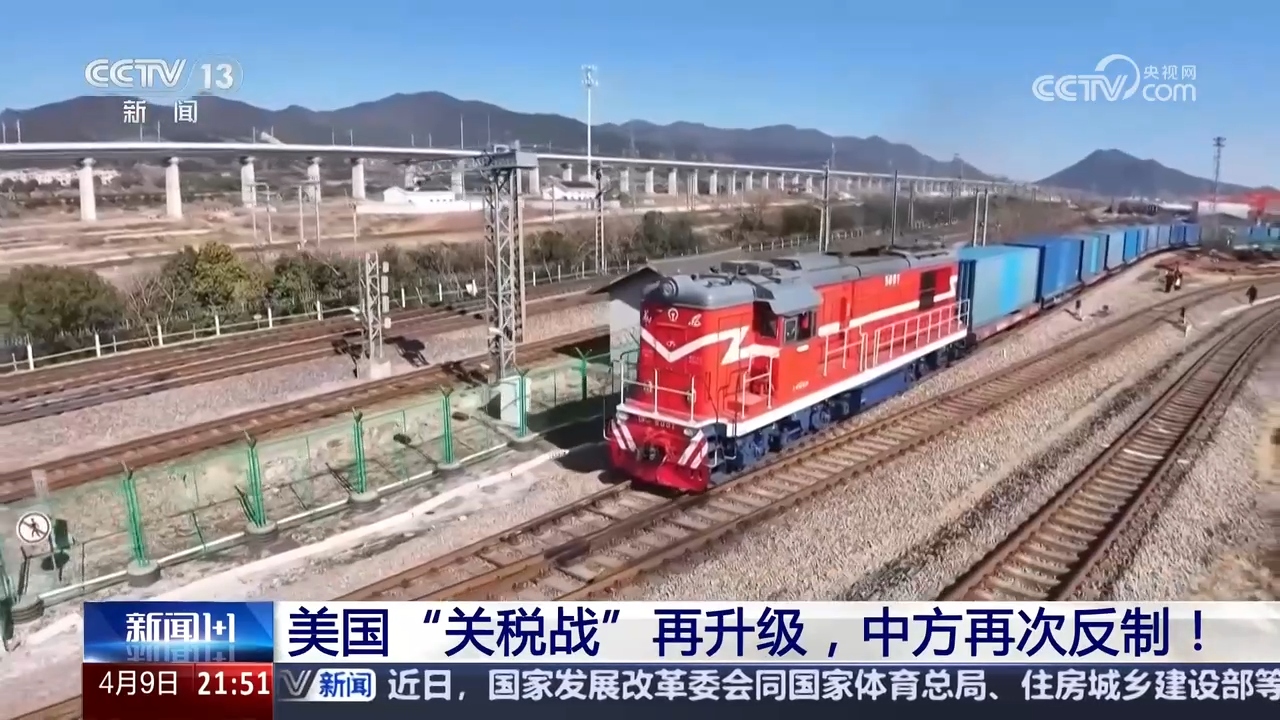CCTV News: Recently, the Trump administration of the United States has wielded the tariff stick and launched a tariff war, which has attracted condemnation around the world, and relevant countries have also continuously introduced response measures. The EU wants to impose a 25% tariff on the United States, and China has also issued further countermeasures. How do you view the latest countermeasures? "News 1+1" connects Tu Xinquan, director of the China World Trade Organization Research Institute of the University of International Business and Economics, bringing analysis and interpretation.
Tariffs on all imported goods in the United States have increased by another 50%. What do you think?

Tu Xinquan: Trump added another 50% tariff, saying that because China countered the 34% tariffs imposed by the United States in the early stage, he would further impose new tariffs. But judging from our Chinese reaction, our reaction is very fast and firm, the counterattack measures are very fast, and the counterattack methods are very fierce. The US side imposes 50%, and we also imposes 50%. I think this is showing the United States and the world that China is an independent and sovereign country, and we will never accept extreme pressure or blackmail bullying. We have enough courage and means to counterattack and counterattack against the tariff measures that the United States has increased at all levels.
What does it mean to continue to adopt the list of unreliable entities and the list of export control controls?
Tu Xinquan: In the past few years, we have also been continuously enriching and improving trade-related policies and laws, such as export control systems, including the system of unreliable entity lists, especially some newly established and improved systems since 2018. The unreliable entity list system is mainly aimed at some discriminatory targeting Chinese enterprises or foreign enterprises that participate in some acts that violate our national interests. They will be subject to corresponding sanctions from us, so the unreliable entity list system is a sanction system. The export control system is mainly considered that our country now has some advanced technologies, including some key raw materials, and we also have the ability to control exports. In the past few years, the United States has been constantly abused export control measures against China on the grounds of national security. After the United States imposed so-called "reciprocal tariffs" on China this time, we also showed to the United States that we have the ability and means to cause losses to American companies. Related American companies, if they want to obtain Chinese technology and raw materials, and if they want to invest in the Chinese market, will be greatly affected, which will have a very obvious restrictive effect on their business interests and business activities.
How do you view the release of the China-US economic and trade relations white paper?

Tu Xinquan: After Trump's so-called "reciprocal tariffs" measures were implemented, it had a huge impact on the global trade system and caused a lot of ideological confusion to the world. The release of the white paper is very timely and necessary. It explains to the world very systematically and comprehensively China's views on the world trade system, including the Sino-US trade system, and the United States' "reciprocal tariffs". And it is an attitude of presenting facts and reasoning, using a large amount of data and facts to clarify China's basic position on China-US economic and trade relations. This will help us win the support of world public opinion, clarify our position to resolutely fight against US trade bullying, and provide a very good support.
What potential potential space does my country's trade have in response to the US tariff war?

Tu Xinquan: The world economy is a whole. From the perspective of development trends, the proportion of developing countries in the world economy is constantly increasing. From the perspective of trade structure, the proportion of developing countries is also increasing. From the overall structure, it has also reached nearly 50%. In the past few years, we have been actively diversifying the market, especially under the promotion of the "Belt and Road" initiative, and have carried out close economic and trade cooperation with many developing countries, including signing free trade agreements, especially bilateral free trade agreements such as RCEP. We have made many new measures to trade treatment for developing countries, especially unilateral opening up to the least developed countries, abolishing tariffs on the least developed countries, constantly strengthening cooperation, and further enriching and expanding the market. We are also closely maintaining cooperation and communication with developed countries, including actively applying to join the CPTPP, and taking corresponding measures to further explore cooperation.
How do you view the EU imposing 25% tariffs on the United States?
Tu Xinquan: Since the Trump administration came to power, various trade restrictions and tariff measures have been continuously introduced, especially the recent so-called "reciprocal tariffs" measures, covering almost all US trading partners. Before this, some trade restrictions were introduced, including tariffs on steel and aluminum and tariffs on automobiles. The EU countermeasures this time against the tariffs imposed by the United States on steel and aluminum in March, and a 25% tariff on US imports of about US$28 billion, because the United States imposed a 25% tariff on EU steel and aluminum products. The United States' continuous tariffs have caused public outrage, including long-term American allies like the EU, are extremely dissatisfied and have taken resolute countermeasures. From a global perspective, a united front has been formed against the United States' unilateral trade protectionism. I hope more countries will stand up and fight back against the US trade bullying, so that the US can feel that unilateral trade protectionist measures will cause huge losses to its own interests and force the US to turn back.